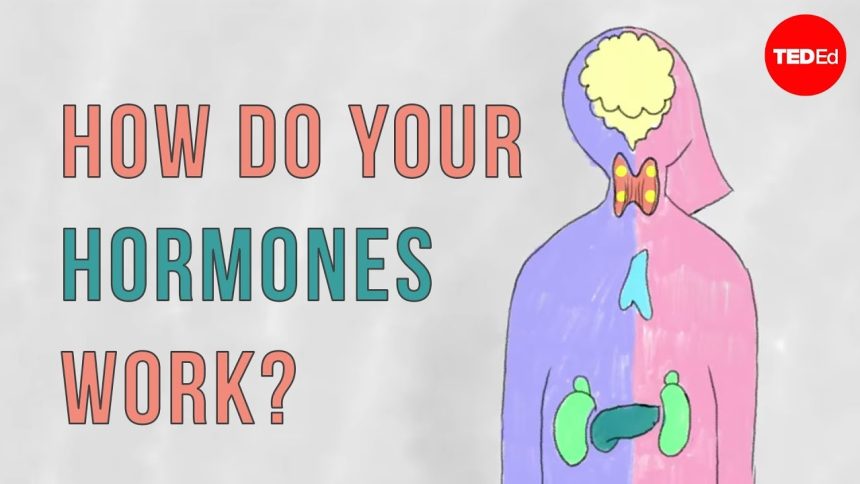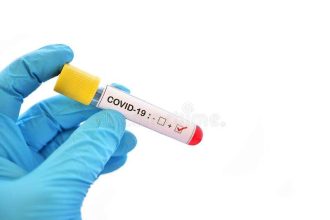It’s hard to overstate the impact of hormones on our bodies. Whether we have too much of them or too little, they are blamed for things like moodiness before and during a woman’s menstrual cycle, emotions during pregnancy, and the baby blues post-partum.
- Hormones Impact Your Sleep
- Both Men and Women Need Testosterone and Estrogen
- Males Experience Menopause
- Progesterone Is for More Than Just Reproduction and Pregnancy
- Hangovers Are Due to Hormones
- Hormones Aren’t Just Made from Glands
- Humans Probably Can’t Detect Pheromones
- Oxytocin Has Many Functions
- Hormones Are Multidimensional
And, don’t forget about libido! Hormones can kill your sex drive or make you want it all the time. Even though hormones are extremely influential, how much do you really know about them, how to regulate them, and what they really do?
If you want to know more, you’re in the right place. Read on for 9 fascinating things to know about hormones.
-
Hormones Impact Your Sleep
Ask any adult, and most of them will tell you that they are tired all the time. Whether it’s from kids waking you at night, not being able to fall asleep or stay asleep, or just not enough hours in the day, we aren’t getting enough sleep. But did you know that hormones can impact your sleep?
If you can’t fall asleep or stay asleep, you may have low levels of melatonin, which is the hormone that regulates sleep. Melatonin is the “sleepy” hormone and when it’s absent, you don’t feel sleepy even though it’s time to go to bed. Things like artificial lights and blue light from electronic devices can disrupt circadian rhythms, impacting your melatonin levels, and your sleep.
-
Both Men and Women Need Testosterone and Estrogen
Typically, we think of testosterone as a male hormone. However, both men and women produce testosterone (men just have more of it) and it’s essential for the health of both sexes. Just the same, estrogen isn’t just for women. Men produce estrogen as well (it’s actually made from testosterone).
Testosterone is far more than just a sex hormone. It’s needed to regulate red blood cell production, muscle mass, and bone density. Men produce estrogen in their muscles, fat cells, livers, and brains.
A healthy balance of both hormones is needed for bone health, prostate health, and heart health in men.
In women, testosterone is important in the growth, maintenance, and repair of their reproductive tissues. In fact, testosterone therapy is even used in some women who are experiencing infertility and are undergoing IVF. When women’s testosterone is imbalanced, their health and sex life can suffer.
-
Males Experience Menopause
When you think of menopause, chances are you think of women. However, menopause is a thing among men as well. Sometimes called male menopause, andropause, or even a midlife crisis, it occurs when men’s testosterone levels begin dropping.
It’s natural for them to drop about 1% a year after 40, but the declines impact men differently. Some may not notice much of a change while others notice a significant change in their overall health, strength, and virility. Other impacts of reduced testosterone include reduced muscle tone, belly and chest fat, depression, and the development of diabetes and heart issues.
-
Progesterone Is for More Than Just Reproduction and Pregnancy
Progesterone is necessary for regular ovulation in women and to protect pregnancies. Women undergoing IVF typically give themselves a progesterone shot throughout the first trimester of pregnancy to make sure that their uterine lining remains strong.
It’s important for other things too, though, including balancing estrogen levels in women. If your progesterone levels are too low, you could experience estrogen dominance, which results in weight gain, migraines, fatigue, mood swings, and thyroid issues.
-
Hangovers Are Due to Hormones
If you’ve experienced a hangover, you know how awful they can be. Headaches, nausea, fatigue, and just a general feeling of awfulness and they can take you out for an entire day (or longer, depending on how tolerant your body is to alcohol).
Hangovers are actually due to anti-diuretic hormones in your body. When you drink alcohol, these hormones are impacted, causing you to become dehydrated, which is typically the most significant cause of your hangover.
-
Hormones Aren’t Just Made from Glands
When we think of where hormones come from, most people think of a woman’s ovaries and a man’s testes. That’s not the only place they are made, though. Hormones can be made from almost anywhere in the body.
Your intestines, your brain, fat cells, bones, etc. They all make hormones. While the glands of the endocrine system are the most common synthesizers of hormones, they aren’t the only parts of the body that produce hormones.
-
Humans Probably Can’t Detect Pheromones
There isn’t a lot of evidence out there that humans can detect pheromones, despite what magazines and romance novels might have you believe. Animals, such as mammals, can detect hormones in potential mates using the vomeronasal organ. This organ isn’t present in humans, however.
-
Oxytocin Has Many Functions
You might know oxytocin as the “love” hormone, but did you know that it’s needed for contractions during childbirth, breastfeeding, and forming monogamous bonds in mammals that bond for life?
It’s also associated with prosocial skills, such as attachments, socially accepted behaviors, and positive interactions with others. Research on the relationship between oxytocin levels and autism is an emerging field of study. If you are involved in hormone research, look here now at our offerings available to researchers.
Hormones Are Multidimensional
Although we typically categorize hormones into neat boxes, they are much more diverse and multidimensional. Impacting our bodies from our head to our toes, hormones are a necessary part of our bodily functions as well as our overall health and well-being.
If you found these facts interesting, be sure to check out more of our health and wellness articles before you go.














